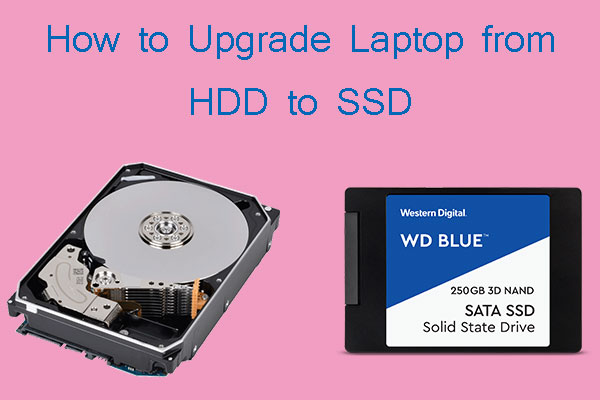Are you unfamiliar with SSD? If so, you can read this post, in which MiniTool Partition Wizard introduces what SSD is, what SSD does in computer, and what advantages the SSD has. After reading this post, you can know whether you should buy an SSD.
What Is SSD?
SSD stands for Solid State Drive. It is the current technology this has begun to replace Hard Disk Drives (HDD). The HDD or SDD is the hardware component in a computer that stores data. They are computer hard drives and have the following functions:
- They store operating system files. When you install an OS, the OS files are written to hard drives. When you boot a computer, these files are called.
- They store app files. When you download and install apps, the app files are written to hard drives. When you run these apps, their files are called to RAM for running.
- Your personal files like documents, photos, etc. are saved to hard drives.
From the above aspects, you can see hard drives are very important to computer. Due to this point, hard drive technology has been evolving to improve the speed and reliability of hard drives.
When the hard drive speed is improved, the operating system and apps will run faster. When the hard drive reliability is improved, your data will have less possibility of data lose. In this case, SSD comes out.
What Does SSD Stand for?
What does SSD stand for? Or what does Solid State Drive stand for? If a hard drive is an SSD, it means that this hard drive is composed of main controller, NAND flash chip, etc. In addition, an SSD means many advantages compared to HDD:
- Faster speed: HDD relies on mechanical heads to read and write data on the disk. This will go through processes of seeking track, reading and writing. All these processes take time. As for SSD, it reads by the circuit selecting the storage location. The electrical speed is very fast, so the SSD is faster than the HDD.
- More resistance to physical shock: HDDs’ platters and read-write head are easy to break off due to any physical occurrences (such as vibration, high movements or temperature fluctuations). Compared to HDDs, SSDs do not have these vulnerable parts.
- Lower power consumption and less heat production: When HDDs read and write, HDDs’ spindles will rotate to make platters revolve around. This will consume lots of power and produces huge heat. Unlike HDDs, SSDs use circuit to store data directly. Therefore, electrical usage decreases and overheating issue is relieved.
- Less noise: SSDs don’t have rotary parts, so they have less working noise.
- Easy to carry: Compared to HDDs, SSDs don’t have heavy platters, spindle, mechanical heads, etc. Therefore, SSDs are lighter and are easy to carry.
Although SSDs have the above advantages, they also have some defects. If you can accept these defects, you can buy an SSD. SSDs’ defects are as follows:
- Shorter lifespan: SSDs have limited write cycles. When the write cycles are run out, the SSD is to be scrapped. Therefore, in theory, the HDD lifespan is longer than the SSD lifespan. But some experiments also show that SSD can last longer after reaching the write cycle limit.
- More expensive cost: SSD’s price per GB is much higher than that of HDD. Therefore, an SSD is more expensive than an HDD with the same capacity.
- Capacity: Nowadays, you can find a 12, 14, or 16TB HDD, but you can’t find an SSD more than 4 TB (So far, the largest SSD I find in Amazon is a 2 TB SSD).
SSD VS HDD: What’s Difference? Which One Should You Use in PC?


User Comments :